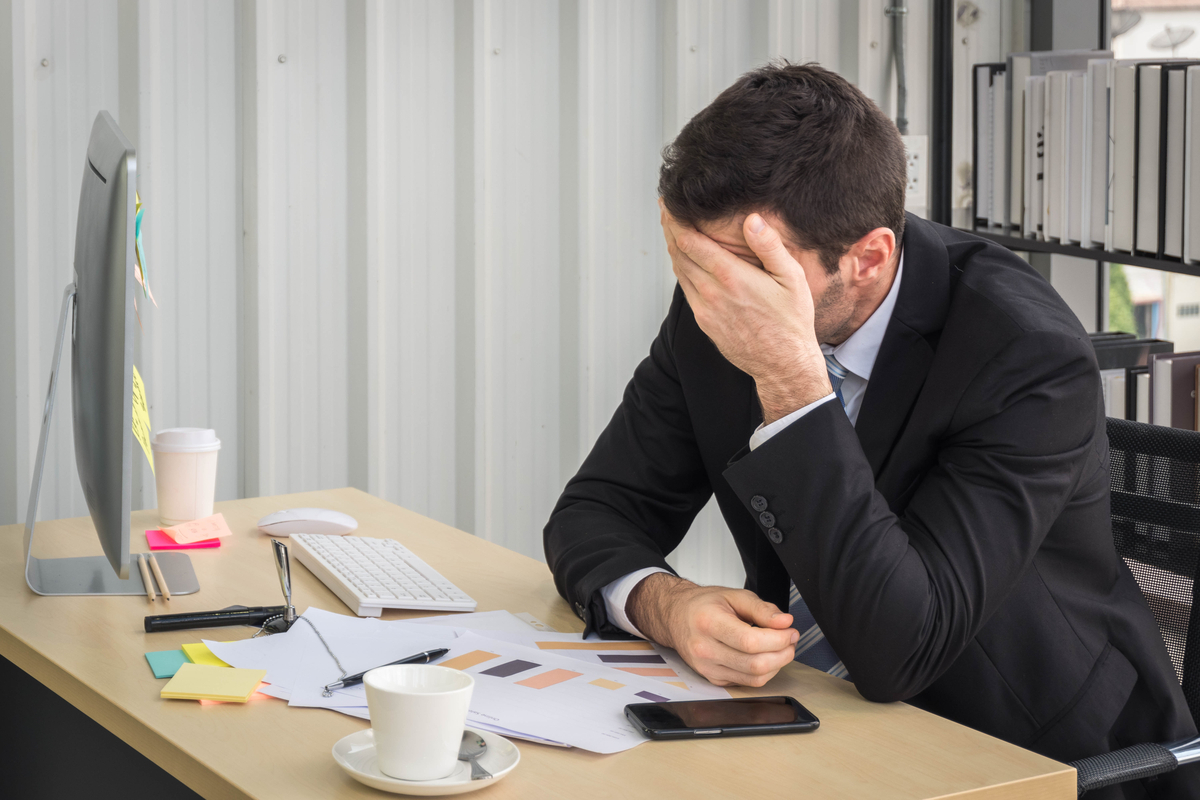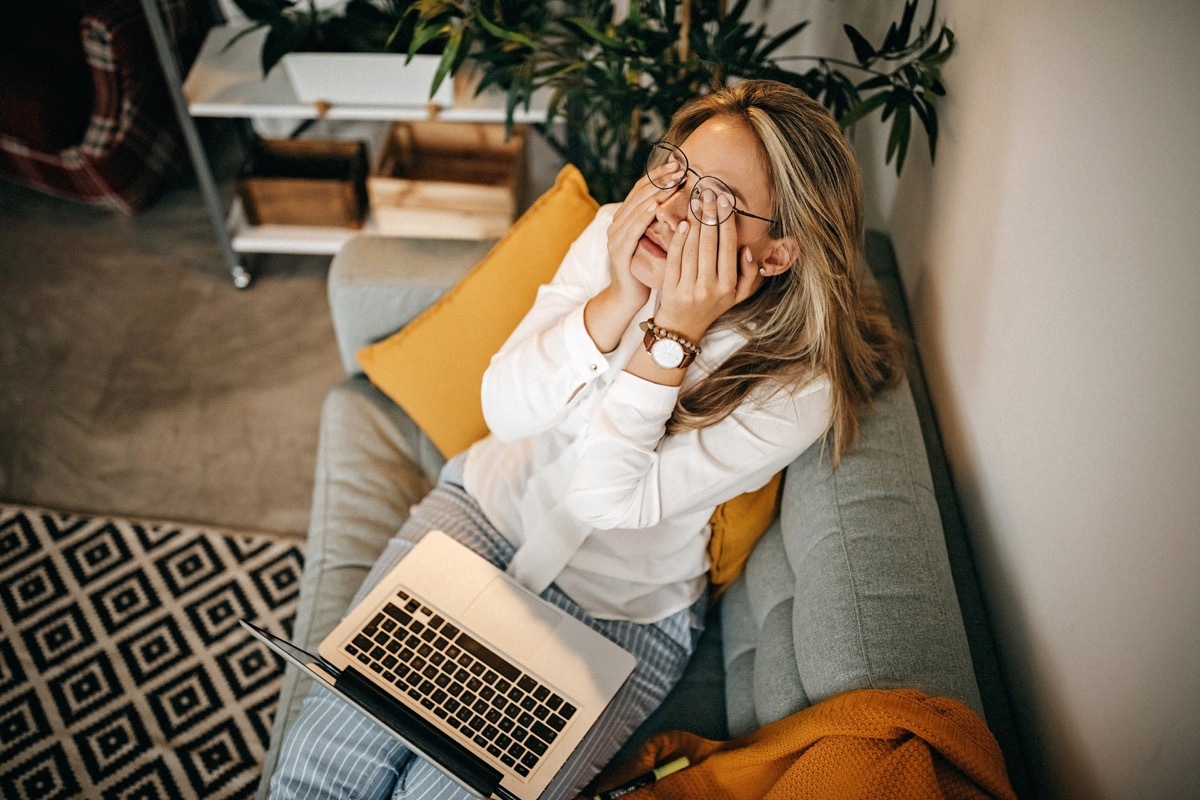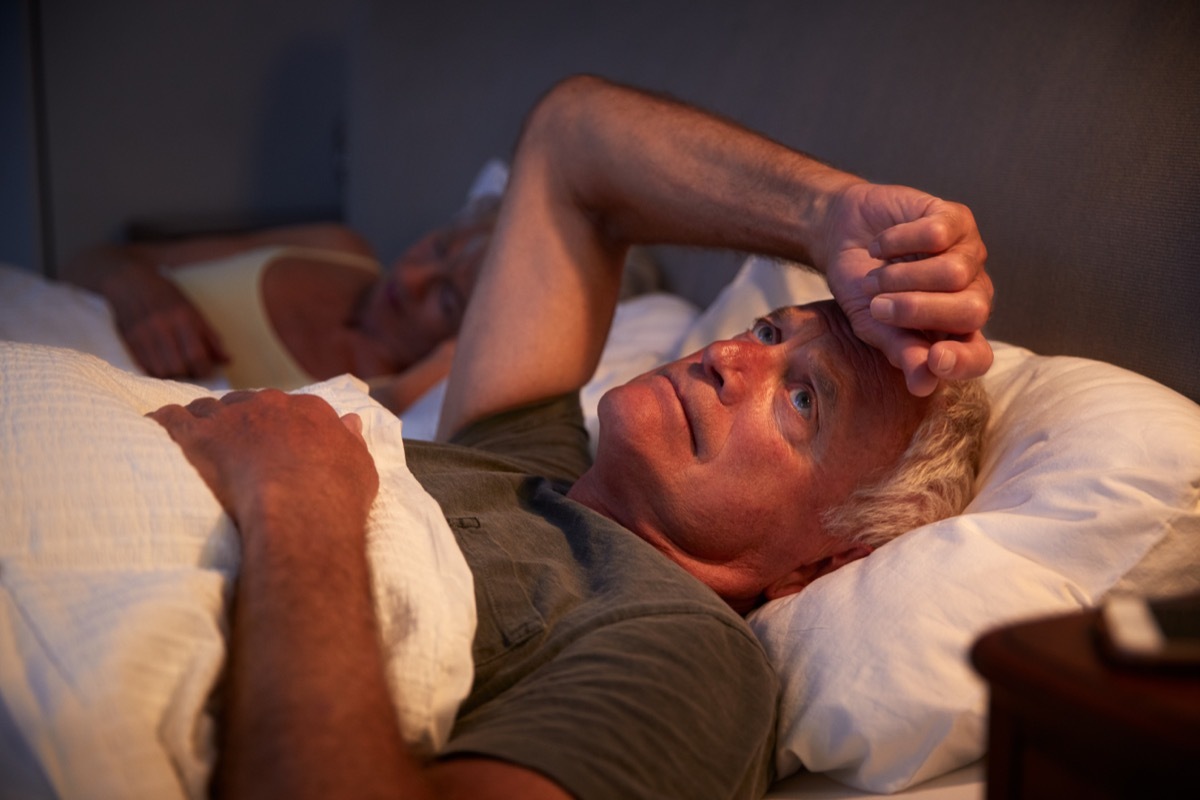That's why you are tired in the afternoon - and I can't sleep at night
If you can't keep your eyes open at 3 p.m. But are well awake at bedtime, read this.

For many of us, it happens like clockwork: After lunch, maybe sometime around 3 p.m., our eyelids get heavy and we find ourselves stifling yawns as we struggle to stay alert. But when bedtime finally rolls around, sleep seems impossible. Our minds race with worry about all the things we didn't get done today, or what may happen tomorrow, and the shut-eye we so desperately wished for a few hours earlier becomes elusive.
Why is it that the afternoon slump hits some of us so hard—and then we can't fall asleep later on? If you can identify with this dilemma, read on to find out what the culprit could be, and how revamping your morning routine could make a huge difference in your energy level all day (and night) long.
READ THIS NEXT: If You Do This When You Sleep, Talk to Your Doctor, Study Says.
Many people rely on a cup of coffee to start the day.

If you, as Dolly Parton once sang, stumble to the kitchen and pour yourself a cup of ambition as soon as you wake up in the morning, you're in good company.
The National Coffee Association (NCA) recently released a report showing that coffee consumption is the highest it's been in two decades, with 66 percent of Americans saying they enjoy the brewed beverage every day. That makes coffee more popular than water, soda sans sucres, or any other drink—not surprising, considering the number of coffee shops you'll find in any major city, and the ubiquity of countertop coffee makers in American kitchens.
The boost we get from coffee's caffeine content—a typical mug contains about 96 milligrams of the drug (and yes, it is a drug)—is only part of its appeal. The ritual of making (or ordering) it, the rich aroma, and the soothing feeling of sipping something warm on a cold day (or cold on a hot day, if you're an iced coffee devotee) are all part of what makes coffee a beloved part of the morning routine. But if you find your energy flagging in the afternoon, and you struggle to sleep at night, you might want to rethink your relationship with coffee.
When the caffeine buzz wears off, your energy level crashes.

"Many people turn to caffeine to increase energy or alertness during the day, especially if they feel tired," says Stephanie Middleberg, RD, MS, CDN, food expert forCalibrate Health. "The problem here is that if you are relying on it as an upper or energy source when tired, it will only temporarily help. Once the caffeine wears off, you'll most likely feel more tired than you originally did, which can start a cycle of caffeine dependence."
Of course, not everyone responds to caffeine in the same way, Middleberg points out. "Caffeine is metabolized by an enzyme in the liver," she says. "Fifty percent of people have a variant in a particular gene that leads to slow processing of caffeine, and these people are considered 'slow metabolizers.'" These people may feel the effects of caffeine much longer than people whose systems clear the drug more quickly, making them feel jittery and keyed up for hours after draining their daily cup of joe.
For these slow metabolizers, there are other health risks, says Middleberg: "[They] are at increased risk of cardiopathie, hypertension, mood disorders, and impaired fasting glucose when they consume caffeine or a certain amount of caffeine."
For more health advice delivered straight to your inbox, Register for our daily newsletter.
Caffeine can disrupt your sleep cycle—and cause anxiety.

If anxiety keeps you up at night, even after you spent the afternoon battling fatigue, coffee could be to blame for that, too. Middleberg routinely recommends that people trying to manage stress begin by reducing their caffeine intake, "as it can disrupt sleep, raise your cortisol levels, and increase your risk of mood disorders." Cortisol is the hormone your body releases in response to stress, and overexposure to it can lead to an array of health problems, says the Mayo Clinic, including digestive trouble, headaches, weight gain, and memory problems.AE0FCC31AE342FD3A1346EBB1F342FCB
"Caffeine can trigger the release of the 'fight-or-flight' hormone, adrenaline, which in some people is good because it makes them feel more alert and wakeful," explains Middleberg. "But in others, especially those slow metabolizers, [caffeine] can lead to anxiety and nervousness." She further notes that, "Caffeine-induced anxiety disorder is now one of four caffeine-related syndromes that appears in the Diagnostic and Statistical Manual of Mental Disorders (DSM) published by the American Psychiatric Association."
Trying your morning routine can help you feel more alert all day.

If you are a coffee lover, the idea of spending a morning without it can be painful, to say the least. But believe it or not, there are alternatives to this hot drink and caffeine that could be even more effective to allow you. One of the most surprising substitutes for a cup of coffee? An Apple!
Yes, it's true - the good old "apple a day" that keeps the doctor away can also help you wake up in the morning, without keeping you awake at night. According to the Cornell University blog, thanks to their natural sugar content, apples "cause a response similar to caffeine Because apple vitamins are released slowly throughout your body, making you feel more awake. "Even better?" Unlike caffeine, there are no tremors, mood swings, anxiety, ribs or dreaded crash, "write their experts.
Getting a natural sun in the morning and making a quick walk can help you wake up,Studies have found. And of course, if you really can't give up your coffee habit, there is always decaf.
Read this then:If you drink your coffee like that, your risk of cancer could soar, the study says.

This is the safest way to catch germs, tell experts

